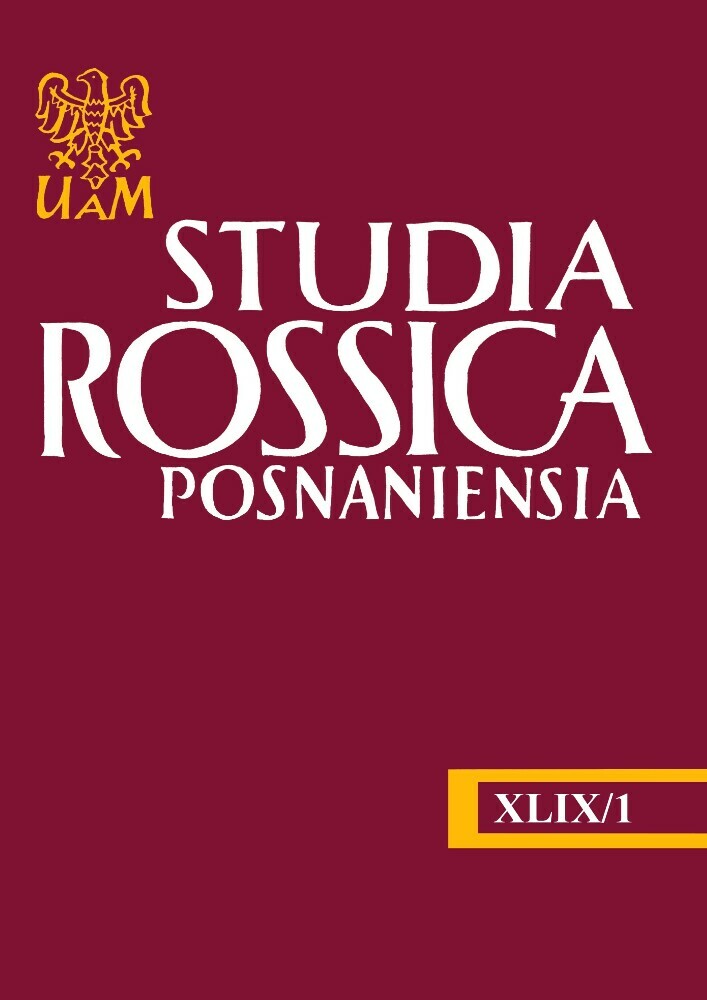Abstract
This article examines the staging and coding of femininity in literary works focused on cities during wartime, authored by women. Drawing on Judith Butler’s reading of Luce Irigaray and Henri Lefebvre’s The production of space, the analysis centers on the works of Lidiya Ginzburg (Zapiski blokadnogo čeloveka, 1984), Anna Świrszczyńska (Budowałam barykadę, 1974), Zlata Filipović (Le journal de Zlata, 1993), and Yevgenia Belorusets (Anfang des Krieges, 2022). The article argues that these texts challenge abstracting, phallogocentric systems of meaning on two distinct planes. First, they subvert abstract spatial structures forced on urban space by masculine power dynamics, accomplishing this through a perspective that emphasizes the city ‘from below’ and underscores the private, as opposed to the institutional, dimension of urban life. Second, they contest the erasure of the feminine in linguistic structures, shedding light on the oppression experienced by women during war and showcasing narrative and linguistic practices that reclaim agency. The article contends that these four texts not only represent deviations from conventional war narratives but also stage their own female authorship as an appeal against phallogocentric linguistic, spatial, and narrative structures. Consequently, they provide a means to articulate the precarity and marginalization of the feminine within both cities during war and economies of significance wherein the female is subjected to obliteration.
References
Belorusets, Yevgenia. Anfang des Kriegs. Tagebücher aus Kyjiw. Berlin, Matthes & Seitz, 2022.
Białoszewski, Miron. Pamiętnik z powstania warszawskiego. Warszawa, PIW, 2018.
Bougarel, Xavier. “Death and the nationalist: Martyrdom, war memory and veteran identity among Bosnian Muslims”. The new Bosnian mosaic. Identities, memories and moral claims in a postwar society. Eds. Xavier Bougarel, Elissa Helms, Ger Duijzings. Aldershot, Ashgate, 2007, pp. 167–191.
Bureychak, Tetyana, Olena Petrenko. “Heroic masculinity in post-Soviet Ukraine: Cossacks, UPA and ‘Svoboda’”. East/West: Journal of Ukrainian Studies, 2 (2), 2015, pp. 3–27. DOI: https://doi.org/10.21226/T2988X
Butler, Judith. Gender trouble. Feminism and the subversion of identity. New York, Routledge, 2002.
Convention on the rights of the child. Treaty no. 27531. United Nations Treaty Series, 1577. Web. 21.12.2023. https://treaties.un.org/doc/Treaties/1990/09/19900902%2003-14%20AM/Ch_IV_11p.pdf.
Cooper, Helen M., Adrienne Auslander Munich, Susan Merrill Squier. “Introduction”. Arms and the woman. War, gender, and literary representation. Eds. Helen M. Cooper, Adrienne Auslander
Munich, Susan Merrill Squier. Chapel Hill, The University of North Carolina Press, 1989, pp. XIII–XX.
Filipović, Zlata. Le journal de Zlata. Marseille, Robert Laffont/Fixot, 1993.
Ginzburg, Lidiya. “Zapiski blokadnogo čeloveka (Častʹ pervaâ)”. Lidiya Ginzburg. Prohodâŝie haraktery.
Proza voennyh let, Zapiski blokadnogo čeloveka. Moskva, Novoe Izdatelʹstvo, 2011, pp. 311–358.
Gruszka, Sarah. “L’historiographie du siège de Leningrad”. Revue des études slaves, 83 (1), 2012, pp. 269–281. DOI: https://doi.org/10.3406/slave.2012.8184
Hass, Jeffrey K. “Anchors, habitus, and practices besieged by war: Women and gender in the Blockade of Leningrad”. Sociological Forum, 32 (2), 2017, pp. 253–276. DOI: https://doi.org/10.1111/socf.12329
Irigaray, Luce. Speculum of the other woman. Ithaca, Cornell University Press, 1992.
Janion, Maria. “Krieg und Form”. Maria Janion. Die Polen und ihre Vampire. Studien zur Kritik kultureller Phantasmen. Berlin, Suhrkamp, 2014, pp. 123–209.
Kebo, Ozren. “Das Paradoxon von Sarajevo”. Der Jugoslawien-Krieg. Handbuch zu Vorgeschichte, Verlauf und Konsequenzen. Ed. Dunja Melčić. Wiesbaden, Verlag für Sozialwissenschaften, 2007, pp. 297–304.
Lefebvre, Henri. The production of space. Malden, Blackwell, 1991.
Lefebvre, Henri. The urban revolution. Minneapolis, University of Minnesota Press, 2003.
Norris, Stephen M. “The war film and memory politics in Putin’s Russia”. The memory of the Second World War in Soviet and post-Soviet Russia. Ed. David L. Hoffmann. Milton, Taylor & Francis Group, 2021, pp. 299–317. DOI: https://doi.org/10.4324/9781003144915-17
Pawletko, Beata. “Kategoria żeńskości/inności w twórczości Lidii Ginzburg”. Rusycystyczne Studia Literaturoznawcze, 21, 2011, pp. 70–80.
Schmid, Ulrich. “‘Sie teilten fluchend und starben teilend’: Das Pathos der Wahrheit in der russischen Blockadeliteratur”. Osteuropa (Die Leningrader Blockade: Der Krieg, die Stadt und der Tod), 61 (8/9), 2011, pp. 265–280.
Seidel, Anna. “How to narrate urbicides? Lidija Ginzburg’s and Miron Białoszewski’s portrayals of urban destruction”. University of Bucharest Review. Literary and Cultural Studies Series, 1, 2022, pp. 51–65. DOI: https://doi.org/10.31178/UBR.12.1.3
Świrszczyńska, Anna. Budowałam barykadę. Warszawa, Czytelnik, 1974.
Tucker, Erica L. Remembering occupied Warsaw. Polish narratives of World War II. DeKalb, Northern Illinois University Press, 2011. DOI: https://doi.org/10.1515/9781501757488
Van Buskirk, Emily. “Recovering the past for the future: Guilt, memory, and Lidiia Ginzburg’s Notes of a Blockade Person”. Slavic Review, 69 (2), 2010, pp. 281–305. DOI: https://doi.org/10.1017/S003767790001500X
Van Creveld, Martin L. Frauen und Krieg. München, Gerling Akademie, 2001.
License
Copyright (c) 2024 Anna Seidel

This work is licensed under a Creative Commons Attribution-NonCommercial-ShareAlike 4.0 International License.

